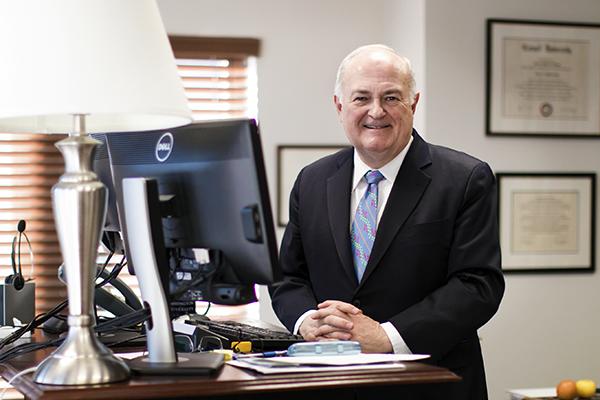Updated: March 8, 2016 at 4:20 p.m.
GW is eliminating part-time faculty positions to increase the number of full-time faculty, officials said.
The administration has been cutting down on some part-time faculty positions in favor of hiring full-time, tenure-track faculty members, University President Steven Knapp said. Faculty say while tenured faculty with top job security may be the most committed to GW, departments have also lost long-term adjunct faculty members through the shift.
Knapp said moving toward hiring more tenured faculty members and fewer adjuncts is a goal of the University’s decade-long strategic plan. He said the move toward the long-term faculty members would improve programs and give professors and researchers a chance to permanently establish their careers at GW.
“We are trying to strengthen academic programs by bringing in faculty who are ready to further their careers here,” Knapp said in an interview last month.
He added that the shift from part-time to full-time faculty is happening within the schools, not from the administrative level.
Knapp said most peer institutions are replacing full-time faculty with part-time faculty to save money, while GW made the choice to invest in more tenured faculty. This decision, which comes with an expensive investment to bring the professors to the University, can pay off over time as those faculty bring more research money into the schools.
Dianne Martin, the vice provost for faculty affairs, said more than 170 of the 400 faculty who have been hired since 2008 are in new full-time, tenure-track positions. She said some of those full-time positions have replaced part-time positions in certain schools or departments.
“In some cases, as we bring new full-time faculty into our community, these newly created positions have led to less reliance on part-time faculty in some departments,” Martin said in an email.
Martin added that the number of part-time faculty members fluctuates depending on whether or not they are brought to GW to teach courses, sometimes for one semester at a time.
The women’s studies and creative writing departments have both lost adjunct faculty members this year due to budget restrictions, though Knapp said the decision to focus on full-time faculty now is not budget-related. Ben Vinson, the dean of the Columbian College of Arts and Sciences, said the creative writing and women’s studies positions would all be replaced with full-time, tenure-track positions.
Clay Warren, the chair of the organizational sciences and communication department, said cutting positions can improve how a department functions, but sometimes takes away from students’ experiences because of the unique positions those adjuncts have held.
“The problem with cutting part-time faculty is who gets cut and for what reason,” Warren said in an email. “Many departments could not operate without vigorous use of part-time faculty, including ours.”
He added that departments have not been consulted on eliminating part-time positions, and the decisions have been “more announcement than conversation.”
David Guthrie, an associate professor of higher education at Pennsylvania State University, said the part-time versus full-time debate “isn’t as simple as saying part-time is bad and full-time is good.”
“Among part-timers, there are some fabulous teachers and mentors. Among full-time faculty, there are probably some lousy teachers,” Guthrie said.
Guthrie added that GW’s shift to hiring more full-time faculty is “pretty unique” because peer universities have been clearly shifting to part-time faculty over the past decade as a cost-cutting method. Adjuncts can be paid on a contract basis and aren’t required to be hired for more than a semester at a time. A tenured faculty member will earn about $2 million over the course of their career at GW.
Todd Ramlow, an adjunct professor of women’s studies, said he was informed late last semester that his contract would end at the end of this academic year.
Ramlow said the loss of his position doesn’t seem to justify the University’s new policy of promoting full-time faculty because the women’s studies department will actually be understaffed after his and fellow women’s studies professor Bonnie Morris’s positions are cut.
“It’s unclear how exactly full-time faculty are actually taking over,” Ramlow said, adding that two full-time, tenure-track positions in the women’s studies department have become vacant within the past year.
Ramlow, who has been at GW for more than 10 years, taught five classes at GW for the women’s studies program, as did Morris. He said that without them, the program will lose some of its course offerings because other department members are responsible for teaching courses in multiple CCAS departments.
“Those courses seem to be left up in the air,” Ramlow said.
Ramlow added that he hasn’t heard of the University making attempts to find replacement professors or announced which full-time faculty will begin teaching these courses.
Robert Donaldson, the chair of the biology department, said his department has not seen any overt cuts in adjunct faculty positions, but part-timers’ roles have been reduced or shifted.
Donaldson said some adjunct professors in his department have been “displaced, not exactly replaced,” with some part-time faculty’s classes and duties shifting without them actually losing their jobs.
Ellie Smith, Colleen Murphy and Jacqueline Thomsen contributed reporting.
This post was updated to reflect the following correction:
The Hatchet incorrectly reported that about 170 of 400 faculty who have been hired since 2008 are in full-time, tenure-track positions. There are actually 170 new full-time, tenure-track positions. We regret this error.







